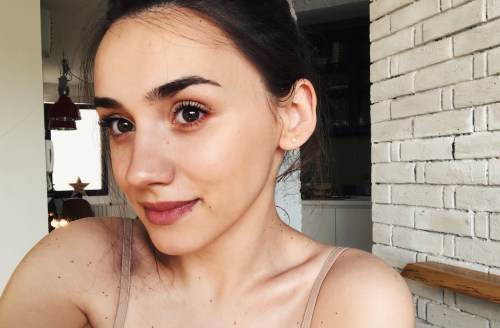Our editors independently select these products. Making a purchase through our links may earn Well+Good a commission
Having lived through a global pandemic for going on a year now, we’ve learned a lot, like that face masks are important, toilet paper is a hot commodity, and the world of exotic animals is far wilder than we could have possibly imagined. And while all (*gestures wildly*) of that was going on, we still managed to learn a lot about skin care while social distancing at home as well.
Experts in This Article
director of cosmetic and clinical research in dermatology and associate professor of dermatology at Mount Sinai Hospital
board-certified dermatologist at Dermatology Physicians of Connecticut and associate clinical professor in dermatology at Yale School of Medicine
As many of us used the time at home to recalibrate our beauty routines, we relied on some of our favorite dermatologists to help us do it properly. Over the course of the pandemic, Well+Good has published hundreds of stories about skin care, ranging from how to deal with maskne (a word none of us had ever even heard before 2020) to how to treat psoriasis with a $10, over-the-counter lotion. To find out which tips have made the biggest difference in our skin during this unusual year, keep on scrolling.
1. Cleansing oil requires a very particular application process
Cleansing oil is known to be one of the gentlest, most effective types of face wash that works for all skin types, but in order to reap its full benefits, you’ve got to use it properly. According to derms, you should start by applying it to dry skin, which will better help it pick up the makeup, dirt, and oil from your pores, massage it in circular motions, then rinse it off entirely with warm water (never cold, because it will solidify the oil) to ensure it gets off all the gunk.
2. You can treat acne and fine lines at the same time with this two-ingredient combo
Adult acne is very much a thing, which means that when you’re trying to treat it, you also may be trying to treat fine lines and wrinkles. The fix, according to board-certified dermatologist Joshua Zeichner, MD, is to use a simple two-ingredient combo. “You need to make sure that the acne products are in line with other aesthetic needs of the patients,” he says. “That’s where topical retinoids are really helpful, and ingredients like salicylic acid, because they both give exfoliating benefits, and skin brightening and evening benefits, and retinoids can also help to stimulate collagen production.”
3. The best hydrating ingredient happens to be the most basic
There are plenty of effective hydrating ingredients out there (in the video above, board-certified dermatologist Mona Gohara, MD, names five of them), but the one that unquestionably deserves a spot in any no-frills routine is glycerin. “Humectants attract water to the skin,” explains Dr. Gohara, adding that glycerin and other fan-fave hydrator hyaluronic acid both fall into this category. “And glycerin is not only so great at drawing water into the skin, but it’s also super gentle, which is why you’ll see it in a ton of products. I personally think that glycerin is the one ingredient that’s good for everyone. It’s no bells and whistles, we know it works, and everybody should have it.”
4. There’s no need to shell out for certain skin-care products
There are certain serums—like the Skinceuticals legendary vitamin C serum—that are worth spending big bucks on. But others? Not so much. According to Dr. Gohara, it’s A-okay to skimp on other spots in your routine. “When it comes to splurging, think about antioxidants, retinol, and any specific skin concern that you may have,” she says. “But I definitely think a gentle cleanser, a sunscreen, or even a moisturizer are places where you can save.” This way, you can save up for one whizzbang treatment that really works.
5. We should all be using our toner as a spot treatment
Toner is one of the skin-care world’s most confusing routine steps, and derms have differing opinions on whether you really need it or not. The trick to getting the most out of it? Only apply it to certain spots. “If you feel like you need it, just use it on areas where you may need a little extra love on your skin,” says Dr. Gohara. If you have dry patches, look for a hydrating toner with hyaluronic acid, like Vichy Pureté Thermale ($18) and if you’re oily in certain spots, use an exfoliating AHA-packed option, like Glossier Solution ($24)
This Parisian Skincare Brand Is Launching in the United States for the First Time—Here’s What a Derm Wants You to Know

We’re Calling It: Cleansing Balms Are the Face Wash of the Future—Here Are 3 to Add to Your Cart

This Is the One Product That Scarlett Johansson Always Keeps in Her Purse and on Her Bedside Table

6. You only need two products to kick maskne to the curb
Last year gave us a swift introduction to the trials and tribulations of “maskne,” but (thankfully) also taught us how to treat it. “Wearing masks is essential, but so is taking care of your skin, because that’s the barrier between us and what’s happening in the outside world,” says Dr. Gohara. “So to whatever extent you can, keep it gentle and basic.” She suggests using a hydrating cleanser, like La Roche-Posay Toleriane Hydrating Gentle Face Cleanser ($15) to keep your skin extra clean, then applying an emollient moisturizer like Vaseline ($2) or Cerave Healing Ointment ($10) to the bridge of your nose, around your ears, jawline, cheekbones, and anywhere else where the mask might be rubbing.
7. Extracting blackheads is totally okay—as long as you do it like this
“Don’t pick your skin” is the skin-care advice dermatologists dish out on the reg… and that most of us constantly ignore. If you are going to go all-in on your blackheads (which, same), Dr. Gohara says there’s only one right way to go about it. “One of the most important ways to get rid of blackheads is to extract them out,” says Dr. Gohara. “I’m not giving you the carte blanche to go at them with your nails, but I definitely think there are ways we need to extract blackheads.” She’s a fan of using at-home comedone extractors, like this one, which are a whole lot safer for your skin than your own fingers.
8. Peptides are the closest thing you can get to Botox in a bottle
Considering this year forced us to spend time away from our dermatologists’ offices, we had to find at-home solutions for the treatments we often rely on them on. And in the case of Botox, we turned to collagen-stimulating peptides to help keep our skin plump. “Peptides are small amino acids, which are the building blocks of collagen,” explains Dr. Gohara. “Kind of like a grape is to wine, peptides are to collagen. They wake up the collagen, shake it up a little bit, so it knows it has to produce itself more.” The result? Smoother, juicier skin—no needles required.
9. Your “buttne” isn’t really “acne” at all
2020 was the year that I learned that those little pimple-looking spots on my butt weren’t actually pimples at all. “One of the most common things that my patients come in for—which can be very distressing—are pimple-like lesions on the butt. Or, ‘buttne,’” says Dr Gohara. “But in reality, it ain’t buttne at all.” While the blemishes on your behind may look like red, angry, inflamed zits, they’re actually something different entirely. “These aren’t true pimples—they’re inflamed hair follicles,” explains Dr. Gohara. To deal with them, she suggests using a 1.5 or two percent benzoyl peroxide wash in the shower, like Panoxyl Acne Foaming Wash ($9). If that doesn’t work, it may be time to take a trip to the dermatologist for a more intense prescription treatment.
10. The best over-the-counter treatment for psoriasis only costs $10
Treating psoriasis can be frustrating, but it doesn’t have to be expensive. According to Dr. Gohara, the best OTC treatment will only run your $10. Her go-to? Eucerin Advanced Repair Lotion ($10). “It has a smidge of exfoliators in it, so it’s a nice compromise between total exfoliation and just moisturizing,” she says. It’s made with lactic acid, which will help to gently slough away flakes, and ceramides, which work to strengthen your skin barrier. “I think that would be a very nice choice for somebody who has psoriasis on their skin,” says Dr. Gohara.
Want even more beauty intel from our editors? Join Well+Good’s Fine Print Facebook group (and follow us on Instagram) for must-know tips and tricks.
Sign Up for Our Daily Newsletter
Get all the latest in wellness, trends, food, fitness, beauty, and more delivered right to your inbox.
Got it, you've been added to our email list.








